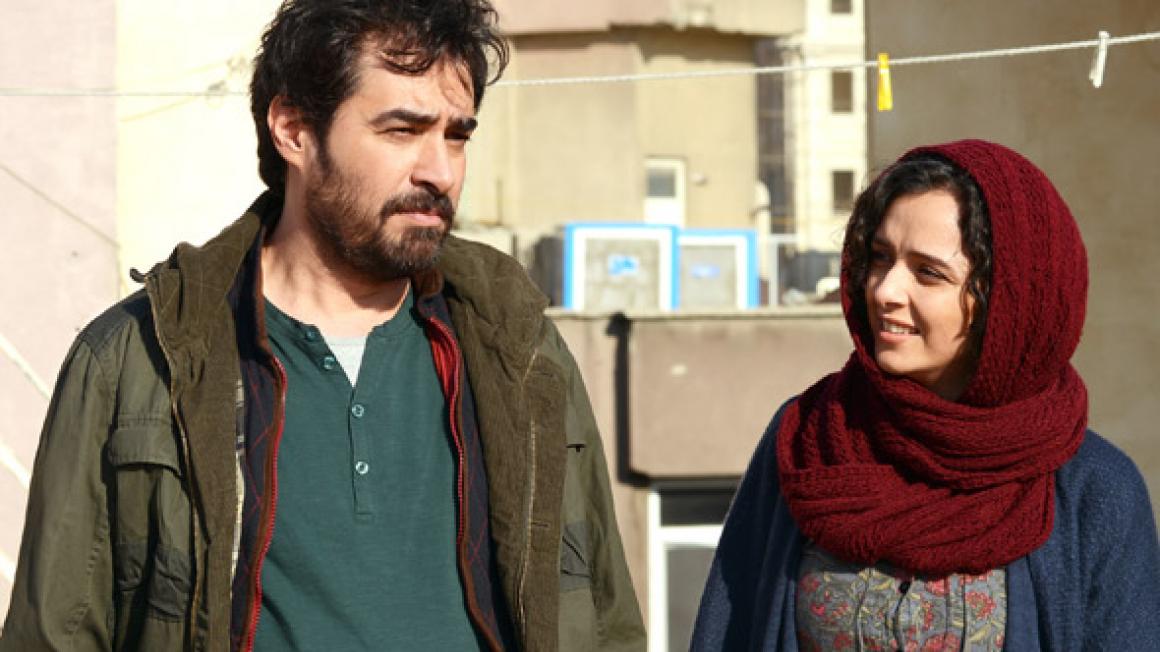The Salesman
Iranian director Asghar Farhadi won his second Oscar for this fine exploration of middle-class hypocrisy, an area of cinema in which he excels.
Farhadi also tried to make the US government squirm by not showing up to collect his prize, a protest at the so-called Muslim travel ban introduced by President Trump. Instead, he sent a video message to a parallel event held in London’s Trafalgar Square, where 10,000 people showed up – including film-maker Mike Leigh and Mayor of London Sadiq Khan – to watch an outdoor showing of The Salesman in freezing February weather.

Let’s stick to the cinema here, because The Salesman is a powerful enough work in its own right. What I like about it – and Farhadi’s previous work, such as a Separation and French-language Paris drama The Past – is how he works in the urban milieu, amid professionals and workers, rather than in the stony, hard-scrabble countryside where so much Iranian cinema has trodden before.
The Salesman looks at a couple in Tehran whose life implodes while they’re working together on an amateur stage production of Arthur Miller’s Death of a Salesman. ‘They’re in culture,’ mutters a disapproving neighbour.
A mood of foreboding is set early on, when their apartment shudders – it might be an earthquake or something to do with nearby excavations – and cracks appear in the walls and windows, forcing all the building’s tenants to evacuate.
Our couple, teacher and part-time actor Emad and his actress wife Rana, are forced to move into a new apartment, where the previous tenant has left quite a few of her possessions. Turns out, this tenant was that most unspoken of things in Iranian society, a prostitute – ‘a woman who had many visitors’ is how the landlord puts it. Soon, this has disastrous consequences when, unaware of the change of tenancy, a former client enters the flat, leaves his money on the side and tries to slip into the shower to join his lady.
In the ensuing panic of mistaken identity, Rana is injured and badly shaken. Actually, we see none of this and only piece it together when Emad returns and he too finds his world shaken, wounded by the affront to his wife and to his reputation.
Unwisely, Emad becomes obsessed with tracking down the intruder, refusing to go to the police and taking on detective and avenger duties himself, all of which consumes him and tears him up inside, much as playing Willy Loman every night on stage does – a proud character brought low by dashed expectations and pride. Farhadi expertly balances the fact and fiction till they bleed into each other. It’s a cracked mirror held up to society, arrowing in on masculinity, shame, honour and secrets.
Shahab Hosseini is powerful as Emad, though perhaps a little unsubtle for my tastes – Taraneh Alidoosti is absolutely terrific as Rana, though, and she becomes the movie’s emotional core during the wrenchingly tense finale.
A deserved Oscar winner, and you can see why Academy members went for it – Miller’s play is one of America’s set texts and the clever use and subversion of its themes would have chimed with them. I shouldn’t be surprised to hear if a remake set in, say, Chicago is being ushered into production right now.


